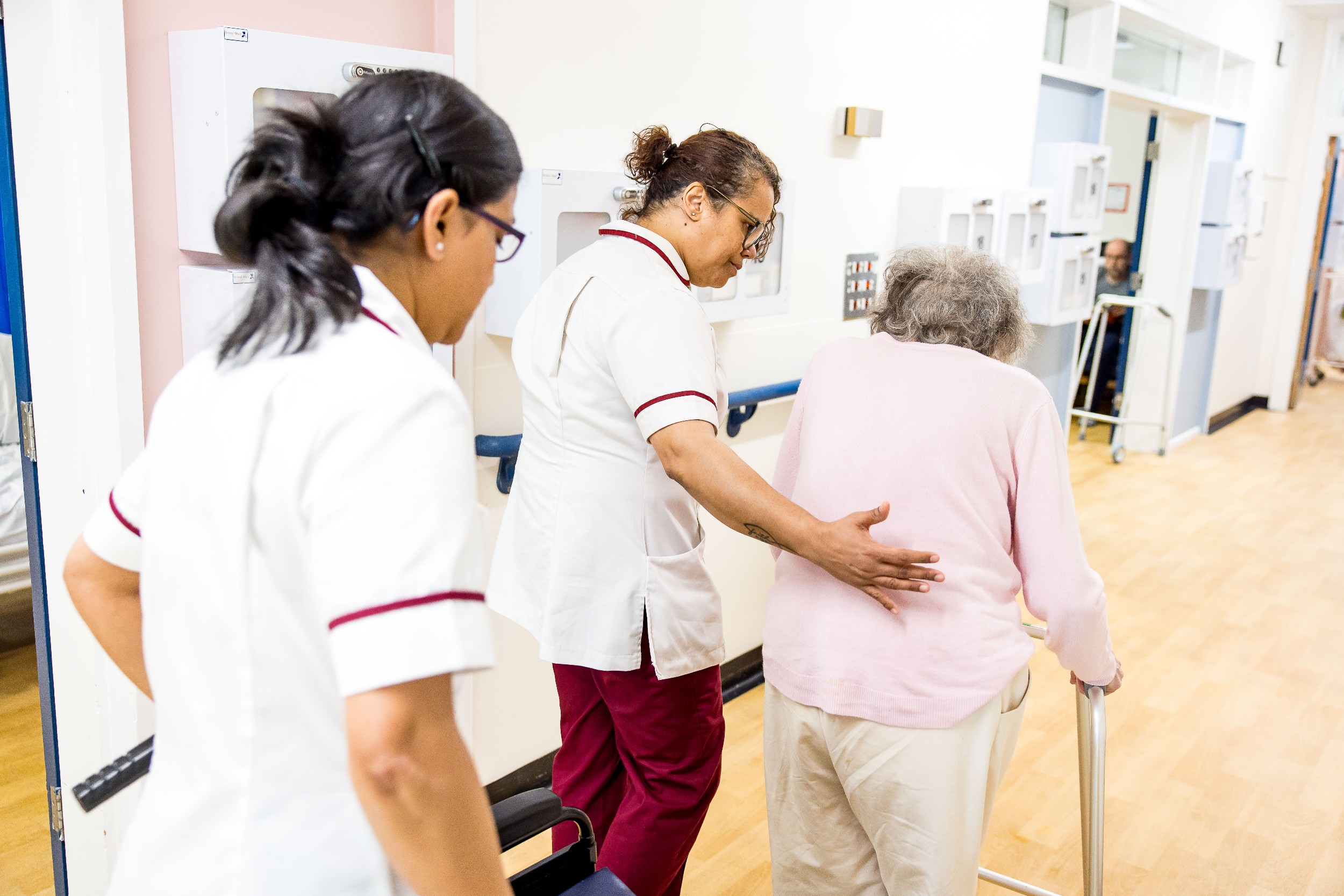We're a team of chartered physiotherapists registered with the Health and Care Professions Council. Our experienced therapists all have specialist skills in the assessment and treatment of injuries and conditions that affect muscles, joints and soft tissues.
We use physical approaches to promote, maintain and restore physical, social and psychological well-being. We're committed to using scientific evidence to support our treatments. Treatment may involve manual therapy (hands on treatment such as mobilisation/manipulation), electrotherapy (such as ultrasound), therapeutic exercise, rehabilitation advice and education.

Key information about this service
We understand how aches and pains in your joints, muscles and bones can cause frustration and worry, impacting on your daily activities. In most cases, these can be treated by yourself, in your own home using guidance available on the MSK Matters website.
If you continue to suffer with a condition or injury affecting muscles, joints and soft tissues such as low back pain, shoulder pain, neck pain, a physiotherapist may be able to help.
You can now refer yourself to see a physiotherapist for an assessment, without the need to consult your GP first.
If you are registered with a GP in Dorset and over the age of 16, simply visit the MSK Matters website and complete the required information on our self-referral form.
Is self-referral right for everyone?
This service is not available for neurological conditions (such as stroke or MS), gynaecological conditions (such as prolapse or incontinence) respiratory conditions (such as COPD or cystic fibrosis) or if your condition is related to pregnancy.
Your GP, consultant or healthcare professional can refer you to your local specialist service in their usual way. Please ask your consultant to refer you to us if you have had a recent operation.
What if I don’t have access to the internet?
If you, a relative or carer are unable to access the internet please advise your GP practice, or attend your local library where help may be available. If you have any concerns your GP, consultant or healthcare professional can still refer you to physiotherapy via the same link.
What can I do to help myself in the meantime?
Research has shown that resting for more than a day or so does not help with problems such as back pain and may actually prolong pain and disability. You may need to modify your activities initially, but the sooner you get back to normal activity the sooner you will feel better. Initially moving stiff joints and muscles can be painful, but this is a normal response and not a sign of damage. Feeling a bit sore initially is also normal and often a good sign that you are making progress. Gentle movements of the joints/muscles will help to prevent continued pain and stiffness. Changing your position or activity frequently throughout the day will help to prevent and reduce stiffness. Try to build up your general activity gradually.
Hot or cold?
If you have a recent injury (less than 72-hours) you may benefit from a pack of frozen peas or ice wrapped in a damp towel for 10-20 minutes. This may help to reduce any heat/swelling. If you have an old injury or recurring problem you may find that holding a hot water bottle wrapped in a towel on the affected area for 10 – 20 minutes reduces pain. Movement of the affected area will aid in preventing stiffness and pain.
Be aware that hot and cold can burn and that you need to check (every five minutes) that your skin does not become very red or blotchy. If this happens stop immediately.
Painkillers
Over the counter painkillers can be helpful. A pharmacist will be able to advise you on the appropriate tablets. If your symptoms worsen you may wish to see your GP.
Our team will contact you to arrange an assessment which can be face-to-face, telephone or secure video consultation. We will ask you some specific questions and ask you to perform some movements in order to diagnose your condition.
We will discuss your personal goals for rehabilitation and devise a treatment plan with you to help you achieve them effectively. This may involve attending one of our departments for further assessment and treatment – we will advise you of the measures we have put in place for your safety.
We will explain your condition and how we might work together to help it.
Your assessment may require 30-45 minutes. Follow-up appointments will be 20-30 minutes.
Try to wear appropriate clothing to allow the area of your body to be examined. You may be asked to undress to your underwear to carry out a more specific examination with your consent.
We will ask for your consent before any assessment or treatment.
Your GP will be able to view our records of our assessment and progress.
Although many physiotherapy departments still use curtained cubicles, when informed in advance, clinic rooms can be made available allowing for a reduction in noise levels and where lighting can be adjusted for those who struggle in normal circumstances or have special educational needs.
For information and exercises on a range of musculoskeletal conditions, visit the Dorset MSK Matters website.